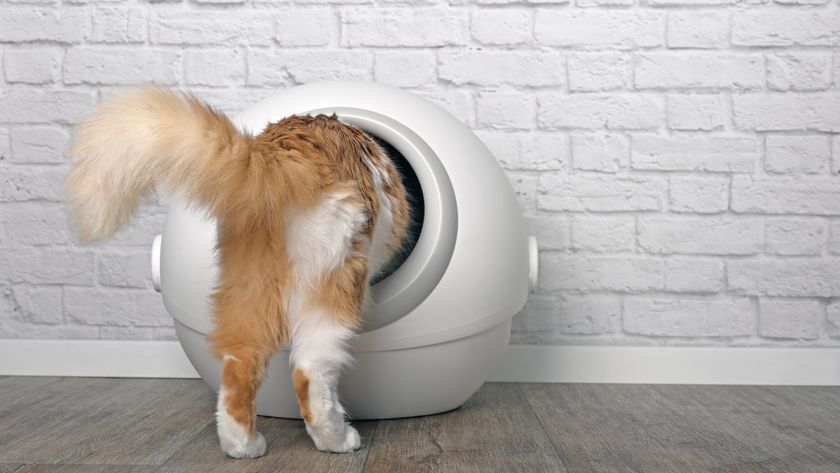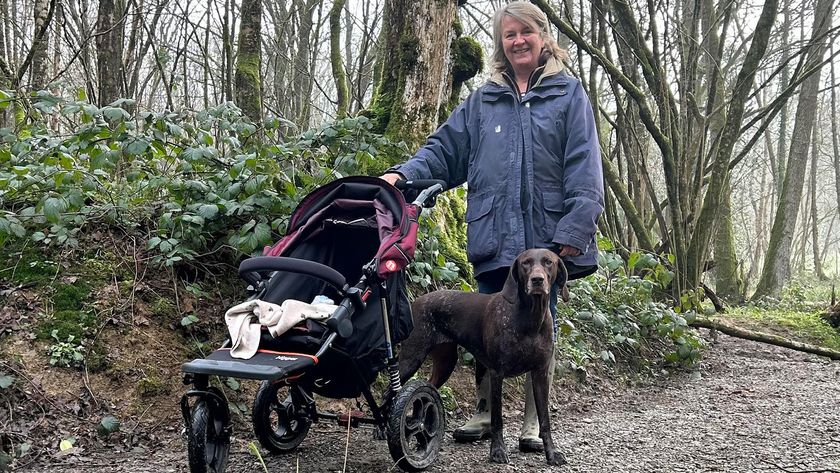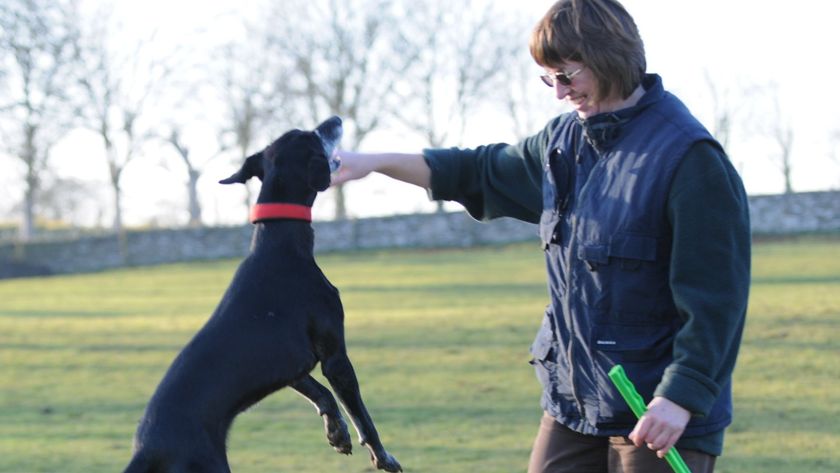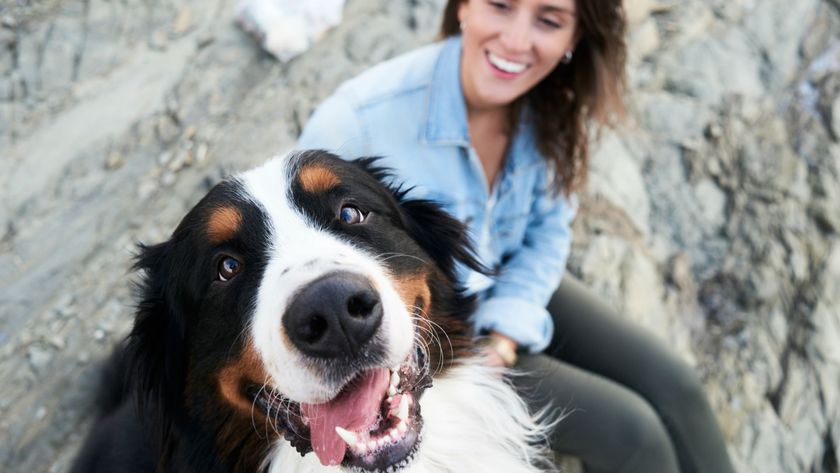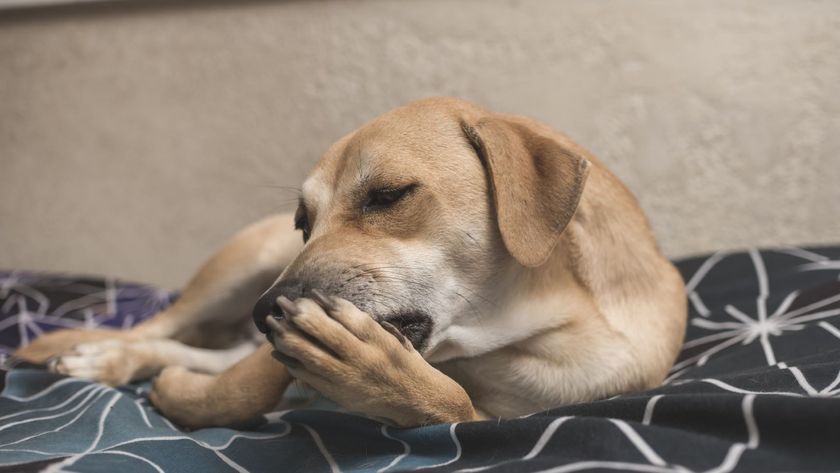Hot spots on dogs: A vet's guide to symptoms and treatment
Hot spots on dogs are painful, read on to find out more about how to help your pet!
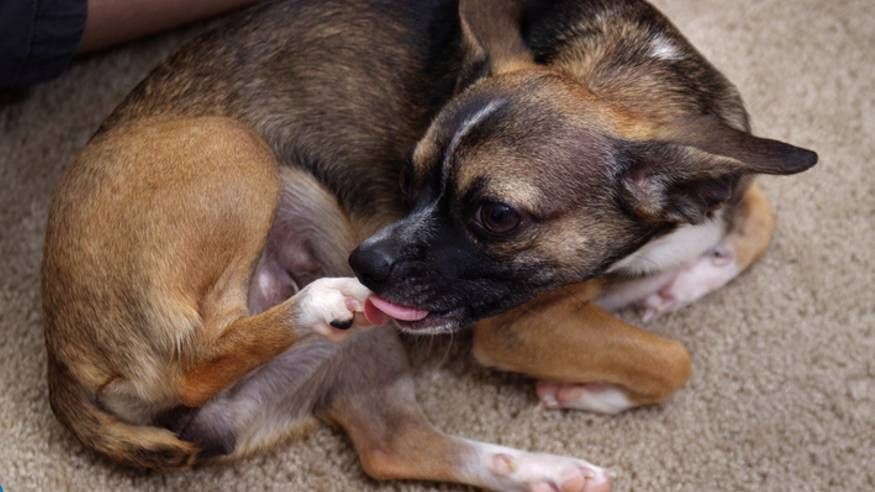
Hot spots on dogs are a frequently diagnosed condition in veterinary practices. If you’ve noticed your dog scratching or licking more than usual, with a red moist patch on their skin, then they could be suffering from a hot spot.
These areas of sore, inflamed skin require veterinary attention. The treatment is usually straightforward but it is best started promptly, so get your pet seen sooner rather than later.
In this article, we’ll explore the symptoms of a hot spot, the possible underlying causes, and the treatments that your vet might recommend.
- Best pet insurance: Give yourself some peace of mind
- Four common allergies in dogs and what you can do about them
What is a hot spot on a dog?
‘Hot spot’ is a term used to describe an area of acute moist dermatitis, which is usually secondary to self-inflicted trauma like scratching or licking. Hot spots can affect any dog but are more commonly seen in large breeds like Golden Retrievers and Labrador Retrievers, German Shepherd Dogs, and Rottweilers.
Symptoms of a hot spot
A hot spot is a patch of inflamed skin with hair loss or matted fur. This area is red and moist or sticky and can vary in size from very small to something much larger, depending on how quickly it is spotted.
The skin is usually quite sore, and it can also be smelly due to the bacteria contributing to the infection. Many dogs find hot spots very itchy and will constantly try to lick and nibble at the area.
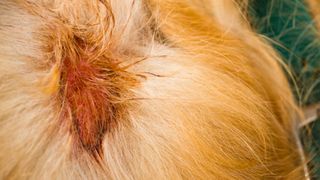
Causes of hot spots
Hot spots can have a variety of causes. Anything that irritates the skin could develop into a hot spot, especially if your dog has then licked and scratched the area excessively. Examples include parasites, an insect bite or sting, an underlying allergy, poor coat condition, or a small cut or graze. Sometimes the cause isn’t identified.
Secondary infection then occurs, with bacteria and yeasts creating even more inflammation, as well as odor and discharge.
When to see the vet
You should see your vet as soon as you find a hot spot. Delaying veterinary treatment may mean the problem just gets worse. So, whilst it’s tempting to try online remedies for hot spots, you should save time and money and take your dog straight to your vet. Whilst waiting for your appointment, try to stop your dog from further interfering with the wound.

Treatment for hot spots on dogs
Your vet will start by examining your dog and may suggest the following treatments:
- Clipping and cleaning the area Shaving the fur off in the affected area means it can be cleaned and treated more effectively.
- Continued topical treatment at home Your vet might suggest that you use an antimicrobial wash daily to treat the wound
- Medications Antibiotics may be required to help treat any infection, and steroids can sometimes help with the inflammation and make things more comfortable for your pet. These come in either tablet form or a topical ointment
- An Elizabethan collar/cone Stopping your dog from continuing to lick and scratch at the area is important. Things will be much slower to improve if your dog keeps disrupting the skin's healing, so make sure they have a collar on that stops them doing from this. A medical pet vest or a t-shirt can also be helpful in some cases.
- Treating the underlying problem If your vet identifies an underlying problem with your dog’s skin such as a flea infestation, then they will recommend treatment for this too. Home remedies are not generally advised as there is a risk of things getting worse rather than better. Salt-water bathing can be effective in some cases, but always ask your vet for advice.
How to prevent hot spots on dogs
There is no fool-proof way to completely prevent hot spots but there are some measures your could take. Keep your pet's skin healthy by using regular preventative flea treatments and by feeding them a good quality diet.
If they are itchy you should get them seen by your vet in case of an underlying skin allergy, which can predispose some dogs to hot spots. Checking your dog’s coat regularly is a good idea so you can spot any problems early.
Frequently asked questions

Where can hot spots occur?
Hot spots can occur anywhere on the body including the belly and paws. However, from experience, many dogs seem to suffer with them on their face or the skin under their jaw (their jowls).
Are hot spots on dogs contagious?
Hot spots on dogs are not usually contagious, so you shouldn’t need to keep your dog away from other animals if they have a hot spot. However, you should maintain good hygiene when handling your dog’s wound, so it is advisable to wear gloves or wash your hands thoroughly before and afterwards.
What is the best thing to put on a dog’s hot spot?
Your vet will be able to advise you on the best treatment to use for your pet. Usually, a medicated wash is advised, or a topical ointment that contains an antibiotic and/or a steroid.
Does coconut oil help hot spots?
Coconut oil is a proven moisturiser so it can be useful for your dog's dry and irritated skin but shouldn’t be used in moist skin infections. Coconut oil will make conditions even damper and could make the infection worse. Only ever use home remedies under your vet’s supervision.
How long do hot spots take to heal?
If appropriate treatment is started promptly and your dog is no longer able to scratch or lick at the area, then things should start improving within a few days. You should always give your dog his treatment for the recommended amount of time, and take them back for any re-examinations as instructed by your vet.
Will a hot spot go away on its own?
By the time a hot spot is established, there is likely to be an infection present which usually requires treatment to resolve. Also, if your dog is allowed to continue to scratch or lick at the area then things could get worse, so intervention is usually needed.
Conclusion
A hot spot is a sore and inflamed area of skin common in some larger dogs. They usually require treatment to clear up any secondary infection that is present. It is best to get your dog seen by a vet so that appropriate treatment is started promptly, and your pet is made comfortable again.
PetsRadar Newsletter
Get the best advice, tips and top tech for your beloved Pets
Rebecca is a veterinary surgeon who graduated in 2009 from the Royal Veterinary College in London. She has a wealth of experience in first opinion small animal practice, having done a mixture of day-to-day routine work, on-call emergency duties and managerial roles over the years. Rebecca enjoys medicine in particular and she is proud to have recently achieved a BSAVA postgraduate certificate in small animal medicine (with commendation).
She writes on various feline and canine topics, including behavior, nutrition, and health. Outside of work and writing she enjoys walking her own dog, spending time with her young family and baking!
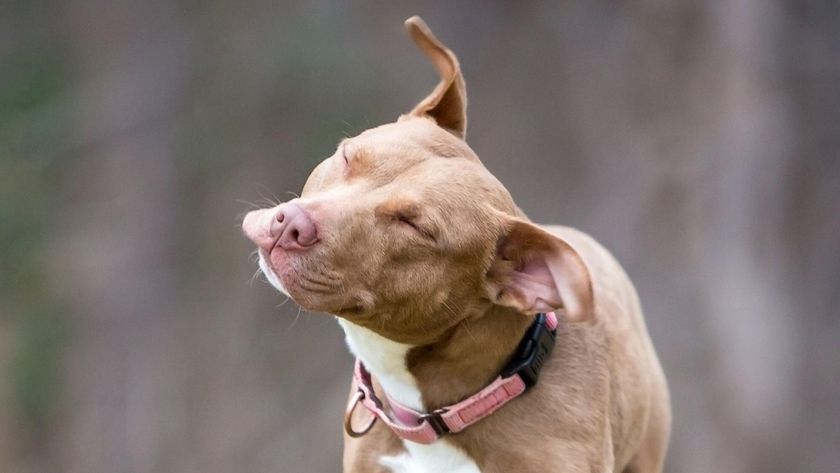
Vet shares 5 signs of spring allergies in dogs you need to watch out for
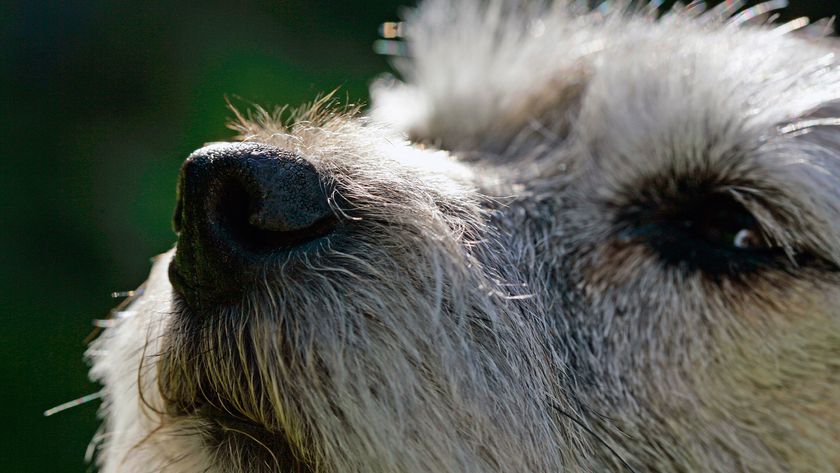
How far can dogs smell? And other ‘nosy’ questions answered


